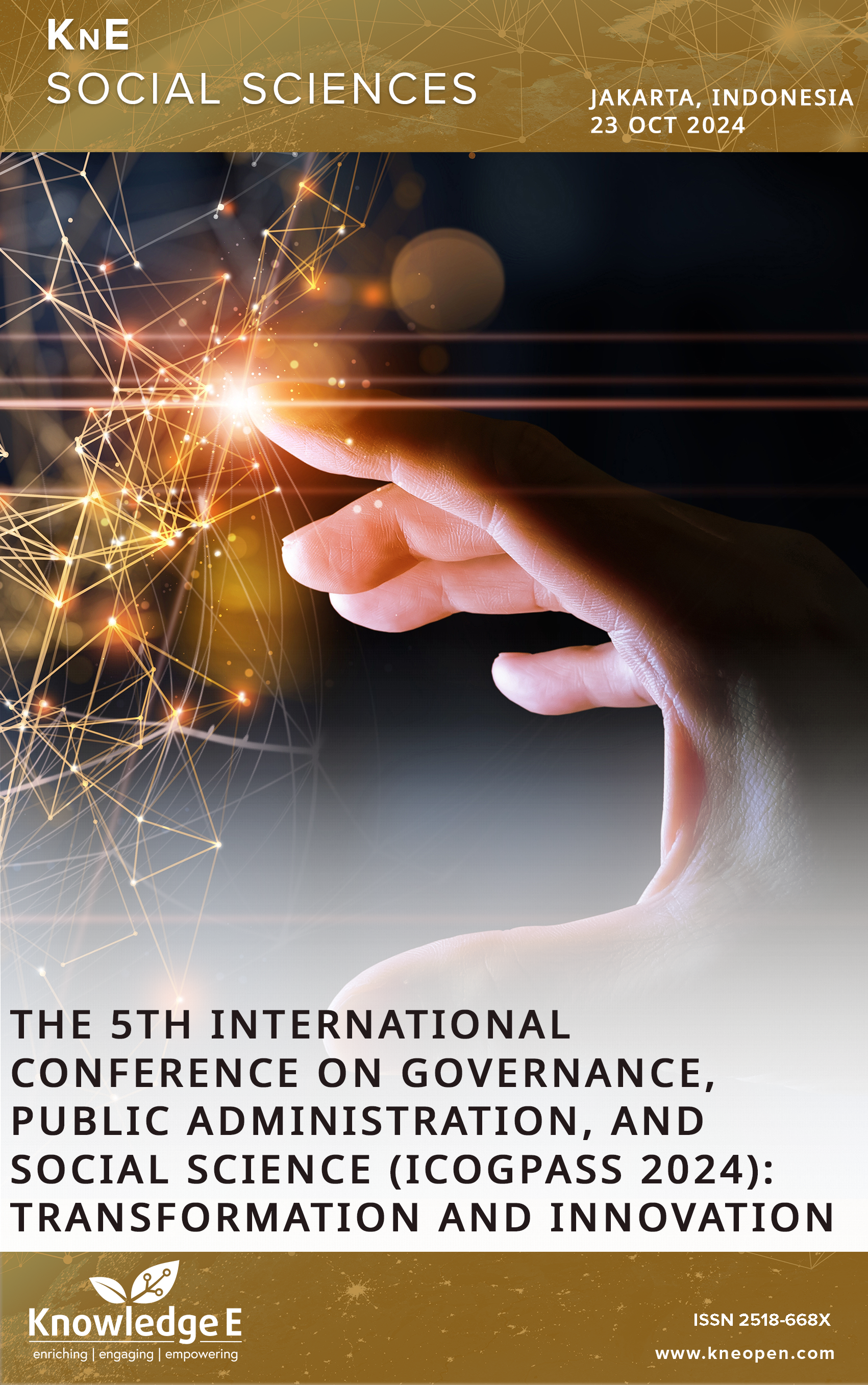Management of Pandang Tak Jemu Mangrove Ecotourism: A Cultural Approach in Conservation and Sustainable Tourism Development
DOI:
https://doi.org/10.18502/kss.v10i16.19189Keywords:
leadership, tourism management, sustainable tourism, community participationAbstract
Ecotourism Mangrove Pandang Tak Jemu is an eco-friendly tourist destination located on the shores of Batam City, Riau Islands, and has been listed among the top 50 in the Anugerah Desa Wisata Indonesia (ADWI) 2022. This destination offers specialized tourism packages that emphasize the values of conservation of nature, environmental protection, social community engagement, and education. The success of this location in attracting both local and international tourists, as well as achieving recognition as a tourism village, is largely attributed to the leadership of the chairman of the tourismaware group (pokdarwis), who effectively utilized various resources and approaches to develop tourism in the area. This study employs a qualitative case study method, using observation, interviews, and document analysis. The results indicate that a cultural approach is a key factor in the success of leadership in tourism management. Through this approach, the pokdarwis chairman successfully accommodated the needs of tourists, collaborated with the local community, and fostered a culture of tourism.
References
[1] Barney JB. Organizational culture: can it be a source of sustained competitive advantage? Acad Manage Rev. 1986;11(3):656–65.
[2] Beyer JM. Taming and promoting charisma to change organizations. Leadersh Q. 1999;10(2):307–30.
[3] Butler RW. Sustainable tourism: A state-of-the-art review. Tour Geogr. 1999;1(1):7–25.
[4] Blackstock K. A critical look at community based tourism. Community Dev J. 2005;40(1):39–49.
[5] Bramwell B, Lane B, editors. Tourism collaboration and partnerships: Politics, practice and sustainability. Volume 2. Channel View Publications; 2000. https://doi.org/10.21832/9780585354224.
[6] Denison DR, Mishra AK. Toward a theory of organizational culture and effectiveness. Organ Sci. 1995;6(2):204–23.
[7] Gardner WL, Avolio BJ. The charismatic relationship: A dramaturgical perspective. Acad Manage Rev. 1998;23(1):32–58.
[8] Goodwin H. Taking responsibility for tourism. Woodeaton: Goodfellow Publishers Limited; 2011. p. 1-256.
[9] de Grosbois D, Fennell DA. Sustainability and ecotourism principles adoption by leading ecolodges: learning from best practices. Tour Recreat Res. 2022;47(5- 6):483–98.
[10] House RJ, Spangler WD, Woycke J. Personality and charisma in the US presidency: A psychological theory of leadership effectiveness. In: Academy of management proceedings (Vol. 1990, No. 1, pp. 216-220). Briarcliff Manor, NY 10510: Academy of Management; 1990 Aug. https://doi.org/10.5465/ambpp.1990.4978722.
[11] Meyerson D, Martin J. Cultural change: an integration of three different views
[1]. J Manage Stud. 1987;24(6):623–47.
[12] Mitchell RE, Reid DG. Community integration: island tourism in Peru. Ann Tour Res. 2001;28(1):113–39.
[13] Scheyvens R. Ecotourism and the empowerment of local communities. Tour Manage. 1999;20(2):245–9.
[14] Trice HM, Beyer JM. Cultural leadership in organizations. Organ Sci. 1991;2(2):149– 69.
Published
How to Cite
Issue
Section
License
Copyright (c) 2025 Dyah Lituhayu, Nina Widowati, Renata Jati Nirmala, Ari Subowo

This work is licensed under a Creative Commons Attribution 4.0 International License.

